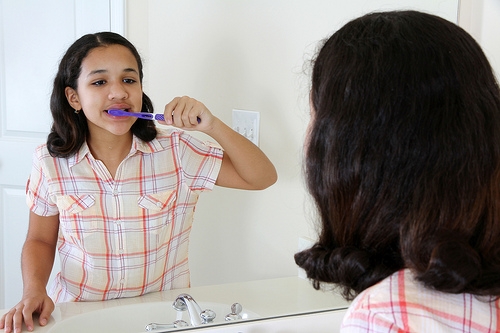A Prescription for Oral Health
July 30th, 2025

You and your dentist are essential partners in making sure you have the best dental care. You do your part by eating a tooth-healthy diet, brushing and flossing as recommended, and seeing Dr. Cosman, Dr. McDonough, Dr. Levac and Dr. Korcok regularly for checkups and cleanings.
And one more essential step you can take for your dental health? Let Dr. Cosman, Dr. McDonough, Dr. Levac and Dr. Korcok know which prescriptions and over the counter medications you’re taking.
Medications Have Oral/Dental Side Effects
We’ve all grown used to hearing “Possible side effects include . . .” at the end of every pharmaceutical commercial. That’s because those unintended side effects can affect our health in any number of unexpected ways—and this includes oral health.
For example, a common side effect of many medications is xerostomia, or “dry mouth.” Because saliva helps keep our teeth and gums healthy by washing away food particles and oral bacteria and by reducing acidity in the mouth, a reduction in saliva production means a greater risk of cavities, gum disease, oral infections, denture discomfort, and bad breath.
Knowing a patient is taking one of the hundreds of medications which cause xerostomia allows Dr. Cosman, Dr. McDonough, Dr. Levac and Dr. Korcok to both monitor the condition and suggest the most effective treatment options to control unpleasant symptoms.
Medications can cause not only dry mouth, but excessive gum tissue growth, oral sores, tooth discoloration, and changes in taste, among other side effects, so knowing which medications you’re taking can provide essential information for the diagnosis and treatment of these conditions.
Medications Interact
Medication might be needed for your dental treatment. Because certain drugs, supplements, and even some vitamins and foods can affect the way our bodies metabolize, absorb, and respond to other medications, we need to know which medicines you’re taking to arrive at your best treatment options.
- There are different classes of antibiotics used to treat oral infections. Knowing your medical history enables Dr. Cosman, Dr. McDonough, Dr. Levac and Dr. Korcok to choose an antibiotic option which won’t interact with your other medications.
- Local anesthetics such as lidocaine, which numb the area to be treated, can also interact with certain medications. Dr. Cosman, Dr. McDonough, Dr. Levac and Dr. Korcok can prescribe an alternative local anesthetic or adjust the dosage as needed.
- If you will be using sedation during your procedure, you have several options, including nitrous oxide gas, oral sedation, or IV sedation. Be sure we know about all of your medications beforehand because of possible interactions. Changes can be made to the type of sedation and/or the dosage as needed.
Medications Impact Treatment
It’s important for Dr. Cosman, Dr. McDonough, Dr. Levac and Dr. Korcok to know if any of your medications will affect standard treatments.
Anticoagulants, for example, are a necessary medication for preventing blood clots from forming, and are often prescribed for certain heart conditions, after joint replacement surgery, or for anyone at risk for developing blood clots. Because these medications prevent the blood from clotting, it’s important to let us know if you are taking such drugs before any kind of oral surgery.
If needed, Dr. Cosman, Dr. McDonough, Dr. Levac and Dr. Korcok can work with you and your doctor to create a treatment plan which will be safe, effective, and designed to work with any of your medications. You should never discontinue taking your prescribed medications before dental work without medical approval, as this can be dangerous.
We need the most up to date information about your health to provide you with the best care possible. Knowing which medications you take and why you take them can help us:
- Diagnose and treat any side effects from non-dental medications which have affected your oral health,
- Prevent drug interactions from occurring, and
- Tailor your treatment to your specific medical needs.
Your prescriptions, over the counter medications, and even herbal supplements and vitamins are essential information. It’s a good idea to make a list before your next appointment at our Kingston, ON office so you have specific medications and their dosages at hand. It’s one small—but vital—step you can take to work with Dr. Cosman, Dr. McDonough, Dr. Levac and Dr. Korcok for your best dental health!





